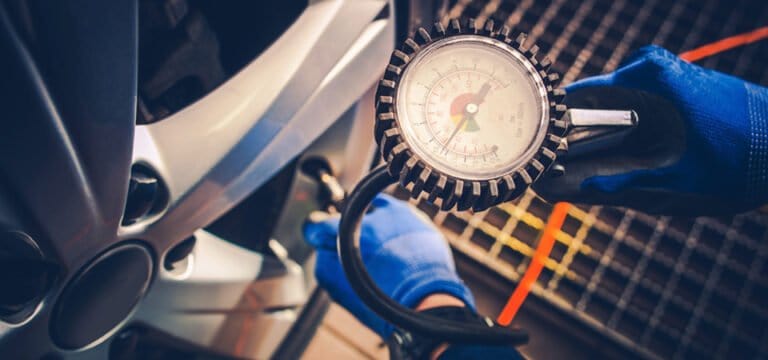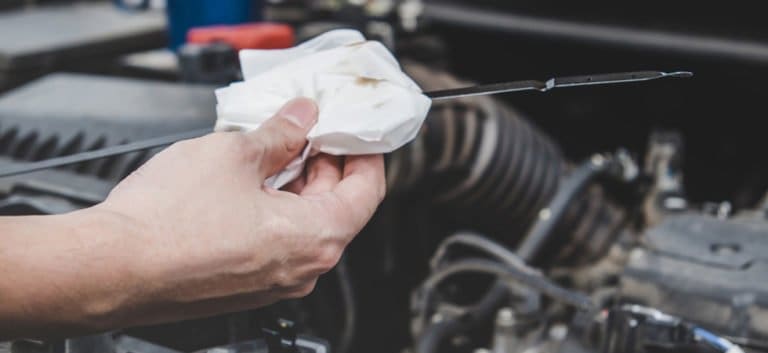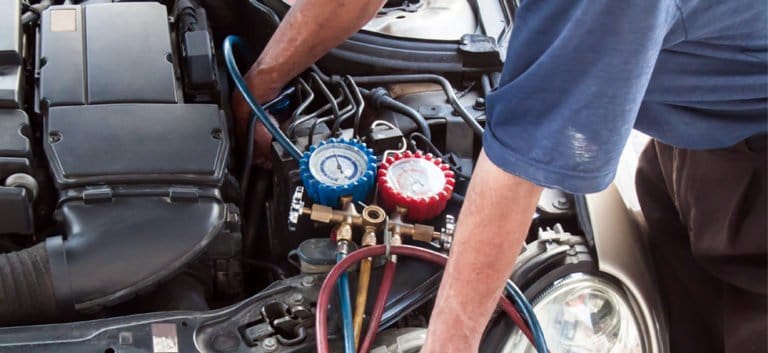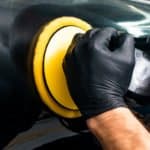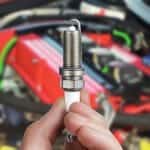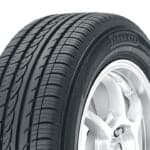Affiliate Disclosure: Some of the links in this post are affiliate links. As an Amazon Associate, we earn from qualifying purchases. Read more in our affiliate policy.
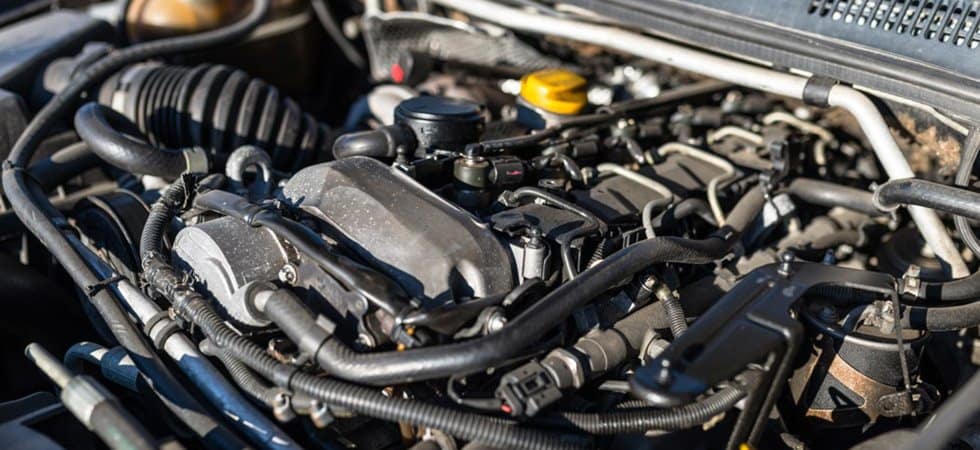
Signs of a Bad Fuel Pump – The Symptoms, Diagnosis And Ways To Fix It
A bad fuel pump is one of the most common problems you may encounter with your car. The reason behind that is that there are many reasons for it to happen. If you’re curious to know more about the symptoms or signs of a bad fuel pump, you’re in the right place.
We touched this topic in the past here on garagechief.com but we never, until now, posted a proper guide on how to spot the symptoms of a weak fuel pump, and how to diagnose and fix it. Let’s dive in, shall we?
First, The Basics – What Is a Fuel Pump?
There are some people who are new to the term and have no idea what a fuel pump is or what it does. So, let’s start by having a quick explanation of the fuel pump and the way it works.
All car engines work by burning a mix of air and fuel. The fuel is fed into the engine through a pipeline from the fuel tank. After that, it enters the carburetor or the intake manifold to be mixed with the right amount of air for combustion.
Fuel Pump Role
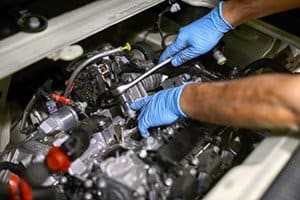
However, this may not be convenient at all times. As a result, with the advancement of technology, we now have fuel pumps that took that job from gravity for better performance.
Fuel pumps’ job is to draw the fuel out of the fuel tank into the carburetor or the intake manifold. It then pumps the fuel and air mixture into the engine where the fuel combustion process occurs.
Along with the injector, the fuel pump is responsible for pressurizing the fuel to reach the engine at the optimum fuel pressure.
Types of Fuel Pumps
There are two types of fuel pumps. The first type is the mechanical one. This pump works by the power of the engine. The other type is electric, which is similar in many ways but with slight differences.
Since they’re similar in many forms, electric and mechanical fuel pump problems can show similar symptoms.
Fuel Pump Diagnosis – Common Symptoms of Weak Fuel Pump
Now that you have a better understanding of fuel pumps, it’s time to dive deeper into our fuel pump diagnosis guide and spot weak fuel pump symptoms.
Here’s a list of all the difficulties you might face if you have a bad fuel pump.
Loud High-Pitched Noise Coming from the Fuel Tank
This is one of the earliest indicators for a problem in the fuel tank. However, it can also happen with other fuel-related problems.
In addition to weak fuel pumps, it can be due to impurities in the fuel tank or low fuel (below ¼ the full tank).
A healthy fuel pump should produce a relatively quiet hum while it runs, and low volume clicking sound when it’s idle.
Sputters or Jerks from the Engine
This might not be the earliest, but it’s one of the strongest indicators for a fuel pump problem. You can notice it specifically if you’re continuously driving at a high speed.
This happens because a healthy fuel pump can supply a constant flow of fuel into the engine without interruption. However, in this case, the bad fuel pump will fail to pump the fuel consistently, leading to sputters.
When the pump skips the pumping, the engine starts jerks and sputtering and then it returns to its regular state when the pump catches up.
Changes in the Engine Speed
This is generally known as “engine surging”. In this case, you’d be driving normally, and the engine suddenly changes its speed and the car surges forward.
This forward surging is usually associated with wears and tears in the fuel pump. It usually happens due to a change in the resistance inside the pump.
Reduced or Complete loss of Power Upon Stressing the Engine
This happens specifically when the vehicle is put under stress, such as carrying a heavy load or driving uphill.
While the engine would sputter on high-speed driving, this extreme condition may lead to reduced performance all the way to a complete loss of power.
Difficulty in Starting the Engine
Fuel pumps are one of the parts that run once you turn the car keys. As a result, a weak pump may be underperforming.
In fact, getting the car to move is a harder task than accelerating, that’s why the first car gear is the biggest. It needs a lot of power, which is what a bad fuel pump is lacking.
Low Gas Mileage
While defining the fuel pump, we mentioned that it mixes the right amount of oxygen and gas.
With that said, you can conclude that a problematic fuel pump won’t do this job properly. As a result, you might notice that you’re visiting the gas station more than usual.
However, this problem is related to many other issues, such as the relief valve and some sensors.
Stalling at Elevated Temperatures
Another problem that can happen due to a lot of reasons. You might notice that your temperature gauge in the dashboard is going up and the cars keep stalling
No matter what the problem is, it’s an alarming issue. In that case, you have to stop the car immediately and seek professional help.
The Benefits of Repairing the Fuel Pump in Time
As you can see, there’s a wide variety of symptoms that’ll strike your car before the gas pump breaks down. The problem is, with modern technologies in car parts like electric pumps, for example, this repair became costly and difficult.
Here are some benefits that you can have with a quick fuel pump repair before it gets worse.
You’ll Avoid Awkward Situations on the Road
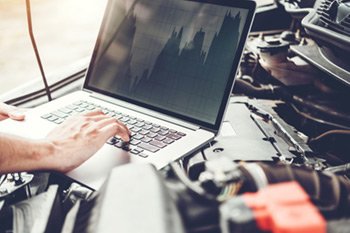
Imagine being out of town for a couple of days and the car starts failing with nowhere to go. The car may also fail to start when you’re in a hurry. Repairing the fuel pump as early as you spot it can save you from these situations.
You’ll be Saving a Lot of Money
Modern car parts are much more costly than traditional ones. Even repairing a fuel pump nowadays doesn’t come at a cheap price.
Additionally, the low gas mileage is a waste of fuel and money, which is another bullet to dodge by early fuel pump treatment.
So, Should You Fix or Replace the Fuel Pump?
It goes without saying that replacing the fuel pump may cost you even more money and up to $1,000 or more in some cars. Repairing your fuel pump in time can be extremely beneficial in that case.
However, it’s usually better to leave the final say to your mechanic.
You’ll Prevent a Bigger Problem
As you can see, a functioning fuel pump is highly essential to keep your engine running smooth. It keeps the fuel quality and pressure at an optimum level.
Since all these parts are connected with the engine, the low efficiency may affect the entire process. As a result, other related parts may start breaking down one by one. This can shorten the engine’s life dramatically in the long run.
Will a Car Start with a Bad Fuel Pump?
This comes down to how you define a bad fuel pump. Usually, a fuel pump starts by giving out signals that it’s malfunctioning, which we stated above.
If you ignore these bad fuel pump symptoms long enough, the pump will fail to even supply enough fuel for the engine to run. You’ll still hear the engine revving but it won’t catch.
Yet, you should know that this can for many reasons, so you have to seek professional help at this point.
How to Fix a Fuel Pump?
A broken fuel pump is usually something that you should keep for professional help. However, assuming a worst-case scenario, here’s what you can do to start a car with a dead fuel pump.
You should notice that these fixes are temporary, so you can reach the nearest mechanic.
Use a Fuel Pressure Gauge
This is one of the simplest methods that doesn’t require professional skills to perform. Yet, a lot of mechanics apply it while fixing the fuel pump.
Simply attach a fuel pressure gauge to the engine, and the engine will start even with a broken fuel pump.
Refuel the Tank
If your gas tank is low on fuel, consider refueling the tank to crank the fuel pressure up a notch.
In some cases, this can help your car to start, so you can reach the nearest mechanic.
How Long Do Fuel Pumps Last? And How Often to Change Them?
Fuel pumps have a wide-ranging life span. In some cases, fuel pumps can be designed to last for 50,000 miles and all the way up to 200,000 miles.
This highly depends on your habit and periodic maintenance. If you never keep the fuel tank below than ¼, you should expect your fuel pump to serve for a long time.
Will “Check Engine” Light Come on If the Fuel Pump Is Bad?
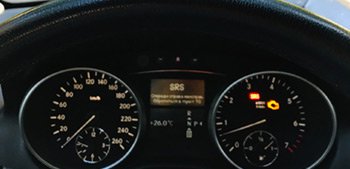
However, if the problem develops and the fuel filter starts malfunctioning. This can affect fuel pressure and may cause the “check engine” lights to come on.
Can a Fuel Pump Go out Without Warning?
As you’ve learned, a malfunctioning fuel tank starts by giving out early signs, such as loud noises.
So it’s unless direct damage is inflicted on the fuel pump, it’s highly unlikely for it to go out without some warnings.
Signs of a Bad Fuel Pump – The Bottom Line
There you have it. A comprehensive guide to all signs of a bad fuel pump. If you notice any of the mentioned symptoms, you should head to your mechanic immediately. As we previously mentioned, early action can save you a lot of trouble and money, so don’t wait until the last minute.
Disclaimers
All product names, logos, and brands are property of their respective owners. All company, product and service names used in this website are for identification purposes only. Use of these names, logos, and brands does not imply endorsement.
It is our policy to make every effort to respect the copyrights of outside parties. If you believe that your copyright has been misused, please provide us with a message stating your position and we will endeavor to correct any misuse immediately.
Some of the links in this post are affiliate links. As an Amazon Associate, we earn from qualifying purchases. This means if you click on the link and purchase the item, we may receive an affiliate commission, at no extra cost to you. This helps us keep this website alive. Read more in our affiliate policy.
